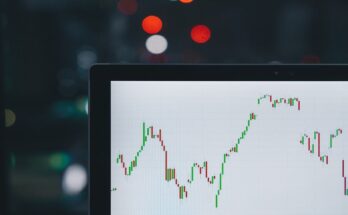For the conventional buy-and-hold long investors, stocks are still the most obvious choice for a number of reasons. Stocks have a long-term record of positive returns and investors can receive regular income from dividends. Dividends and capital gains have favorable taxations, and so on. However, when it comes to trading, even though the odds are still stacked in favor of stocks, forex trading has a number of advantages that it can offer.
In this article, we’ll take a close look at the factors you should consider when choosing between forex and stock trading.
Technical or Fundamental Analysis
Forex trading is heavily calibrated toward technical analysis, which many stock traders consider to be only one factor in their investments, since they also need to examine market and stock fundamentals.
If finding the intrinsic value and using relative valuations are central to your trading strategy, you should probably stick with stocks. However, if your strengths include charting and analyzing technical patterns, you could do better with forex trading other newbies.
Leverage
Forex is another better world in terms of leverage. Some traders can handle the 50:1 levels of leverage, which are available in the forex market. There’s only 2:1 leverage for trading stocks. Excessive leverage can magnify returns when your trades are working in your favor but it could also wipe out your trading capital in minutes. If you’re unsure about your ability to handle leverage, do yourself a favor and ditch forex trading.
Discipline
Trading discipline is essential to forex trading due to the potential for magnified losses through leverage. In stock trading, your losses are in general restricted to the amount you have invested. Even if you lose more than your initial investment because you’ve heavily margined, such losses are unlikely to ever be 50 times your original investment, a fate theoretically possible in margined forex trading. Consider the thousands of retail investors that were saddled with huge losses on their short Swiss franc positions after that currency’s surge last 2015.
Bearish Bets
Forex trading makes it simple to take a bearish bet on a currency. If you think the Japanese yen is going to be weaker against the dollar, all you have to do is sell the Japanese yen vs. the US dollar in the forex market. Shorting individual stocks is a bit more complicated, even though it’s easier to take a short position on equity indexes through inverse exchange-traded funds.
Number of positions
Forex trading involves a limited number of currencies. Based on a survey from the Bank for International Settlements, the top four most-traded currencies accounted for over ¾ of the average daily forex trading turnover of US$5.3 trillion per day, and as a forex trader you only have to watch less than 10 major currency pairs. In comparison, a stock trader has a choice of more than 3,000 stocks in the US alone.
Risk Tolerance
Your risk tolerance is a very huge factor when deciding whether to trade forex or stocks. In simple words, if you have a low risk tolerance, you have to steer away from forex trading. Trading stocks has its share of risks but at least you can mitigate risks in that sector by sticking to the biggest and most liquid blue chips.




